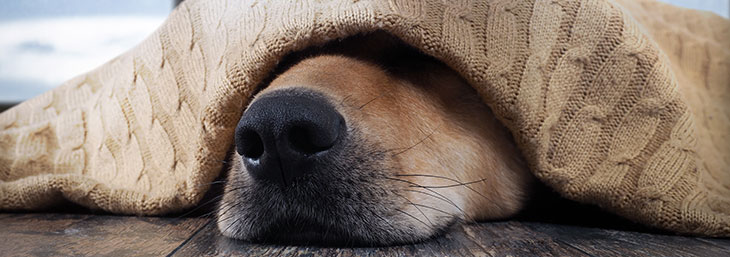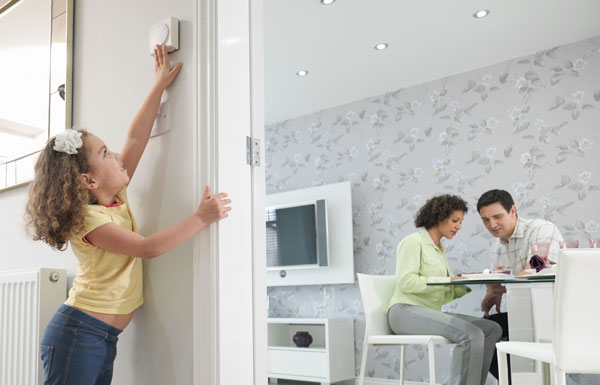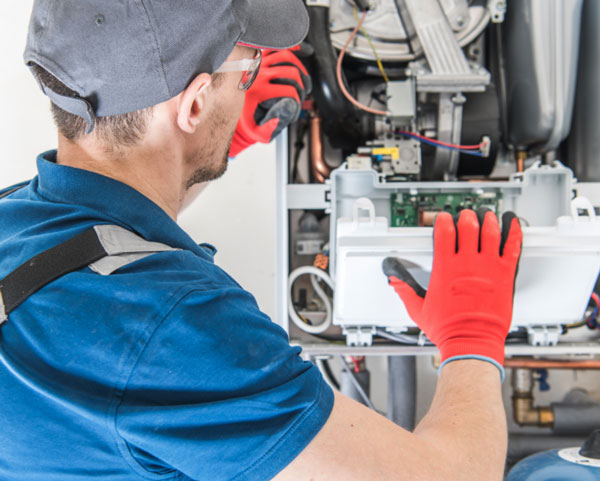
Posted: January 27, 2022 at 8:40 am
By: Lakes Region HVAC
New Hampshire residents depend on reliable heating systems during our frigid winter months. The last thing you want is to feel cold air blowing out of your vents! Before you call a professional there are a few things you can do to potentially troubleshoot this issue.

If your heater kicks on but you immediately feel cool air, give it a couple minutes to warm up. Cold air is pushed out from the vents before the hot air goes through (similar to when you turn hot water on in a shower, but cold water comes out first). If this doesn’t resolve the issue, then check the settings on your thermostat. First, make sure the thermostat is set to “heat,” and at a high enough temperature to turn the furnace on. Next, check to see if it is set to “auto” or “on.” If the thermostat is set to “on,” the blower will continue whether the home is being heated or not. Making sure the switch is set to “auto” ensures the fan will only blow when the furnace is providing heat. Check out our blog about smart thermostats to learn more about options and features that could make your home more efficient.
Any obstruction of airflow limits a furnace’s ability to heat your home efficiently and effectively, including a dirty air filter. Restricting airflow into the furnace means that the unit will run a lot longer and much harder to provide adequate heat and, as a result, often times lead to overheating. It is recommended that you replace your air filters every 30-90 days.

If your gas furnace is not blowing hot air, the issue could be with the ignition system. Check to see whether the pilot light is out. If it is:
Furnaces without pilot lights rely on flame detectors to ensure proper heat. If your flame detector is covered in dust, dirt, or grime, it can cause the burner to shut off. Fortunately, this can be resolved by cleaning the flame sensor.
If you have any type of combustion furnace (oil, propane or natural gas), fuel supply issues will cause problems. With natural gas furnaces, it is best to contact a professional so they can evaluate your system and determine if it’s a faulty gas valve, gas burner or an issue with the furnace itself. For propane and oil furnaces, getting a refill on your tank may solve the problem if there are no other ailments with your furnace, tank or supply lines.

Newer, high-efficiency furnaces have condensate drain lines that remove the water created during the heating process. If these drain lines are clogged it activates a switch that is designed to prevent the burners from lighting.
If your furnace is working as it should but your ductwork is damaged then the hot air could be escaping through cracks and holes instead of being delivered throughout your home. Having your air ducts sealed can solve this issue and result in efficient heating during the winter months and efficient cooling during the summer months.
Scheduling annual tune-ups and inspections can prevent a lot of these problems. During a furnace maintenance appointment your HVAC technician changes furnace filters, cleans your unit and inspects and repairs parts that appear to need attention or replacement. This will make your furnace more efficient, extend the life of your system and save on repairs down the road.
If this article is useful to you, or if you know someone who can benefit from it, please Share it.
Have another question? Contact the Lakes Region team, and we’ll find your solution.
Our clients are homeowners, small business owners, and corporations—and one could be you by calling 603-286-2290 or emailing info@lrhvac.com.
Lakes Region’s expert service technicians and installers are trained in the latest advancements in heating and cooling technologies. We'll help you select the correct comfort system for your home, ensuring that your equipment operates at the highest efficiency — giving you the lowest monthly operating cost.
Visit our website.
LRHVAC’s office hours: Monday - Friday
7:30-4:30
Phone: 603-286-2290
Mail: 86 Bay Hill Rd., Northfield, NH 03276
Email:
Email us